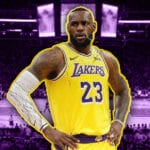In retrospect, the negative effects of football on the human brain should have been obvious. Similar to cigarette smoke, exhaustive studies were needed to prove an irrefutable link before the NFL admitted to a self-evident fact: repeated blows to the head damage the brain, sometimes severely.
The damage proves to be nearly inescapable at the NFL level. Of 111 tested NFL players’ brains, 110 showed chronic traumatic encephalopathy, commonly known as CTE.
CTE ravages regular grey matter functionality, turning some players into shells of their former selves in later life. These players form the heart of the NFL economy, which ranges from stadium construction to NFL betting lines, played by millions around the world.
The near-universal rate of CTE among the first big study of ex-NFL players reveals an empire built on broken brains.
Luster of NFL career dims for modern players
NFL careers last, on average, a measly 3.3 years, shortest of all major pro leagues in North America. Injuries and concussions exist at rates more frequent than reported, with many players regularly pushing through pain.
Concussions have been reduced, as per NFL reports – but researchers point to smaller, less obvious hits as the main culprit of brain damage.
During a typical NFL career, players have been exposed to thousands of hits, all of which compound the damage over time. Linemen crash into each other with considerable force repeatedly during a game, creating the same energy as driving a car into a wall at 30 mph.
Concussions don’t typically happen during these common interactions, but the repeated brain-rattling can eventually lead to CTE.
All positions are exposed to brain injury, often forcing early retirement. Chris Borland left the league at the age of 24 after leading the NFL in tackles over 15 games. Borland cited CTE and examples of players who lived horribly in retirement as the reason he left the sport, despite performing at elite levels.
Baltimore Ravens lineman John Urschel hung up the cleats after only three years with the franchise, opting to pursue a math PhD at MIT at the age of 26. “Objectively, I shouldn’t,” John wrote in an article for The Players Tribune, referring to the risk of playing football. Urschel joined a growing number of players who retire early, choosing guaranteed health over a longer football career.
Doesn’t take a rocket scientist like John Urschel to figure out that the NFL has lost luster in the eyes of those who love the game the most.

NFL isn’t rushing to solve player safety
United States congress reported that the NFL conducted a “behind-the-scenes” campaign to discredit government studies of concussions in the league, after the NFL promised $30 million to research. The league left the deal with $16 million of the funds unpaid. It’s just another example of the NFL’s lack of urgency to prioritize player safety.
Numerous lawsuits have been filed over the past decade, the biggest of which represents more than 4,500 players and a settlement upwards of a billion dollars. Some sued over misrepresentation of the effects of concussions and repeated brain impacts.
Even Dan Marino filed a suit, which he eventually retracted. No other major pro sport league faces this type of litigation. Few employers deal with class action suits on this sort of scale.
 Science searches for a solution
Science searches for a solution
Medical science progresses quicker than the NFL, searching for cures to repeated head trauma. Currently, the holy grail is a “concussion pill” which purportedly reverses the effects of brain injuries. Progress was recently achieved in mice, who displayed the ability to bounce back after therapeutic intervention.
Of course, human brains are for more complex than a rodent’s, meaning a breakthrough is still far off. NFL helmets are also becoming more advanced, mitigating the force of hits through their cushioning capacity.
That still falls well short of where the NFL needs to be in terms of player safety.
Until a solution can massively curb head trauma, the NFL, NCAA and youth football faces an existential crisis.
One they need to deal with in an urgent matter, no matter the financial cost.


 Science searches for a solution
Science searches for a solution





